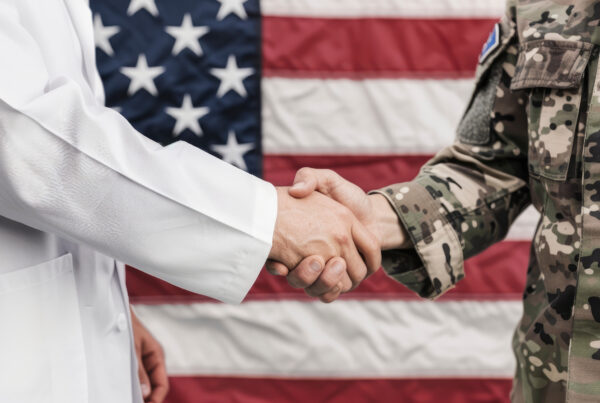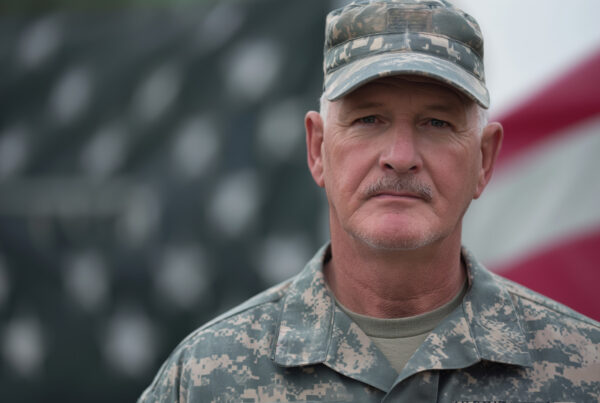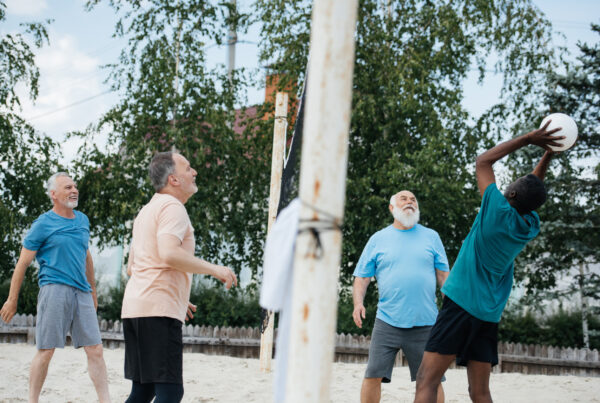”Question: What are the best ways Veterans can take advantage of Recreational Therapy Month with friends and family?
Reading time: 7 Minutes
MWi Hack:
- Join (or start) a local recreational group with fellow Veterans, friends and family—whether it’s hiking, art, sports, or gardening—to naturally combine physical activity, stress relief, and social connection while creating a support network that makes therapy feel less like therapy and more like fun with friends.
MWi Summary:
- Recreational therapy combines fun activities with healing benefits – think hiking, art, sports, or gardening – making therapy feel more natural and engaging.
- Getting friends, family, and fellow Veterans involved turns solo activities into meaningful social connections and builds a lasting support network.
- Regular participation in group activities, whether organized or informal, helps reduce stress, improve physical health, and create opportunities for casual but important conversations.
- Many communities already offer Veteran-specific programs with free equipment and trained instructors – check local VA centers, parks departments, and Veteran organizations to get started.
- Starting small with just a few neighbors or friends can grow into a sustainable group that provides ongoing support while building new skills and confidence.
Recreational therapy offers powerful benefits for physical and mental well-being, especially within the military and Veteran community. As we celebrate National Recreational Therapy Month, let’s explore meaningful activities that Service Members, Veterans, and their loved ones can enjoy together while maximizing therapeutic benefits.
Understanding Recreational Therapy
Recreational therapy uses activity-based interventions to address the needs of individuals with injuries, illnesses, and other conditions. For the military and Veteran community, these activities can help address both visible and invisible wounds while strengthening relationships and building resilience.
Outdoor Adventures with Purpose
The outdoors provides an ideal setting for recreational therapy activities. Veterans can organize small group hikes with spouses and neighbors, combining physical activity with social connection. These outings help reduce stress, improve cardiovascular health, and create opportunities for meaningful conversations in a low-pressure environment.
For those interested in more structured activities, many communities offer Veteran-specific programs in kayaking, rock climbing, or mountain biking. These activities build confidence while developing physical skills and creating natural opportunities for peer support.
Creative Expression Through Art
Art-based activities offer powerful therapeutic benefits while fostering connection. Veterans and their friends can organize painting sessions, photography walks, or pottery classes. These activities help process experiences, reduce anxiety, and develop new means of self-expression. Community centers and Veteran organizations often provide spaces and materials for such activities, making them accessible to everyone regardless of artistic experience.
Team Sports with a Therapeutic Focus
Adaptive sports programs specifically designed for Veterans have grown significantly in recent years. From wheelchair basketball to sitting volleyball, these activities combine physical rehabilitation with social interaction. Even informal neighborhood games can provide therapeutic benefits when approached mindfully, focusing on participation and mutual support rather than competition.
Gardening and Nature-Based Activities
Community gardens offer excellent opportunities for recreational therapy. Veterans and their families can work alongside neighbors to create and maintain gardens, providing physical activity, stress relief, and a sense of purpose. The predictable cycles of planting and harvesting can help establish routine while offering tangible rewards for ongoing effort.
Mind-Body Practices
Group yoga and meditation sessions adapted for Service Members and Veterans provide powerful tools for managing stress and anxiety. These practices can be particularly effective when shared with spouses and friends, creating a supportive environment for exploring mindfulness techniques. Many Veteran organizations now offer specialized programs combining traditional mind-body practices with military culture and experience.
Making Activities More Therapeutic
To maximize the therapeutic benefits of recreational activities:
Create a consistent schedule: Regular engagement amplifies benefits and builds stronger social connections.
Focus on process over performance: Emphasize participation and enjoyment rather than achievement or competition.
Incorporate mindfulness: Take time to notice and discuss how activities affect mood, energy, and well-being.
Build social connections: Use activities as opportunities to strengthen relationships and develop support networks.
Community Resources and Support
Many communities offer specialized recreational programs for Veterans. Local VA centers, Veteran Service Organizations, and parks and recreation departments often provide adaptive equipment, trained instructors, and dedicated facilities. These resources can help make therapeutic recreation more accessible and effective.
Starting Your Own Group
Veterans often find that organizing their own recreational therapy groups provides additional benefits. Leading activities helps develop new skills while creating opportunities to support others. Start small with a few friends or neighbors, and let the group grow organically based on shared interests and needs.
The Impact of Shared Experience
When Service Members and Veterans engage in recreational therapy activities with friends, spouses, and neighbors, they create opportunities for shared understanding and mutual support. These experiences help bridge the civilian-military divide while providing therapeutic benefits for everyone involved.
Looking Forward
As we celebrate Recreational Therapy Month, consider how these activities might enhance your well-being and strengthen your community connections. Whether joining existing programs or starting new ones, engaging in therapeutic recreation can provide lasting benefits for physical and mental health while building stronger support networks.
The key to success lies in finding activities that resonate with your interests and needs while creating opportunities for meaningful connection with others. By approaching recreation with therapeutic intent, Service Members, Veterans, and their communities can support each other’s well-being while enjoying shared experiences and building lasting relationships.
Through our responsive content and dedicated support, MWi continues to serve the modern military and Veteran community by providing relevant, practical strategies for enhancing connection and wellness.






